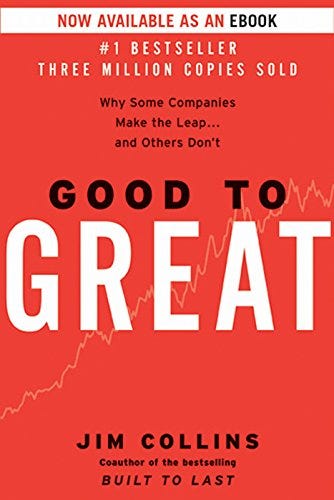Building Codiga: Resilience
Note: This post is part of a series about building Codiga.
The Stockdale Paradox
In “Good to Great”, Jim Collins talks about the “Stockdale Paradox”. While I recommend reading the whole book (one of the greatest books about company building), I will summarize what the “Stockdale Paradox” is.

For his book, Collins interviewed Admiral Jim Stockdale. Stockdale fought in the Vietnam War and was imprisoned for eight years. During these eight years, Stockdale had no information about whether or when he would be released. Add to this the stress of prison, facing violence/abuse, and other things you can face as a prisoner during a war, like mental wounds. When being interviewed, Stockdale said, “I never doubted not only that I would get out, but also that I would prevail in the end and turn the experience into the defining event of my life, which, in retrospect, I would not trade”.
Collins asked Stockdale who (e.g., what soldiers) did not make it. And the answer from Stockdale was “the optimists”: all the people who thought they would be out within a year got their hopes crushed. They then thought it would happen six months later and never saw their dreams materialize. They gave up and never made it out.
The Stockdale paradox is basic: you need to confront your brutal facts and, at the same time, never lose faith you will prevail.
Again, I highly recommend you read the book. My summary of a few paragraphs does not do justice to the whole chapter. This book taught me a lot about building companies, and I highly recommend it.
How it applies to startups
Like Stockdale, you have absolutely no idea when you will meet success. Operating a startup is facing a constant stream of bad news, and you must keep faith in your future success. But you must also face the brutal facts and work constantly to improve your product and company.
Too many founders are overconfident in their ability to deliver a good product, and build a customer pipeline or sell.
Many founders believe that building a great startup takes a few months at most and will turn them into a millionaire almost overnight.
Others believe that money solves everything and that their huge funding round allows them to deliver faster because they have more resources (hint: are you improving your odds of shooting into the bullseye because you have two guns?).
Those who believe this will be a quick and easy game will see their hopes crushed and eventually give up.
No matter how much money you raised, how famous you are, or how many employees you hired: never be overconfident. Show up every day and keep working until your company is successful.
When I led Codiga, I faced multiple bad news periodically: important employees leaving, competitors launching great products, or big customers moving away. My personal life also had numerous ups and downs and, quite frankly, it was often a total mess. But I always faced the brutal facts: we needed to improve our product, build our customer pipeline, and do everything I could to improve the bottom line.
I had a lot of lonely nights filled with anxiety, cigarettes, and too many jumbo margaritas. But I never doubted one second that I would succeed. I knew we would end up building a successful product and company and have a successful exit. I just did not know when it would happen. Which is why I always kept our burn rate low, our runway long and make sure we have enough time to make it happen.


Nice. Thanks for sharing!